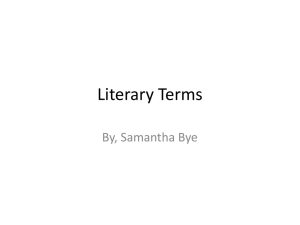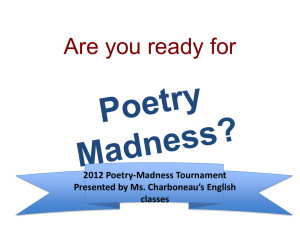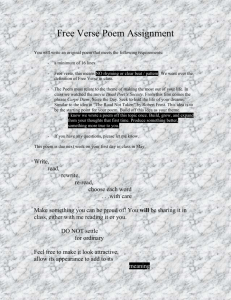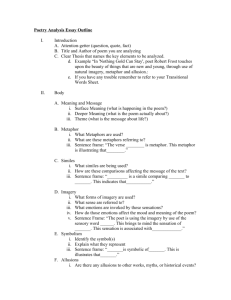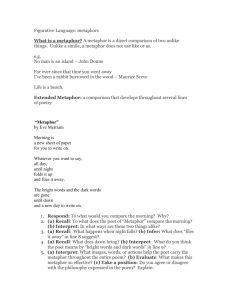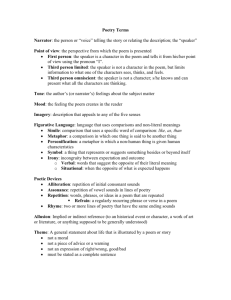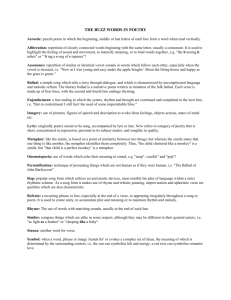internal rhyme - rhyme that occurs when a word within a line rhymes
advertisement
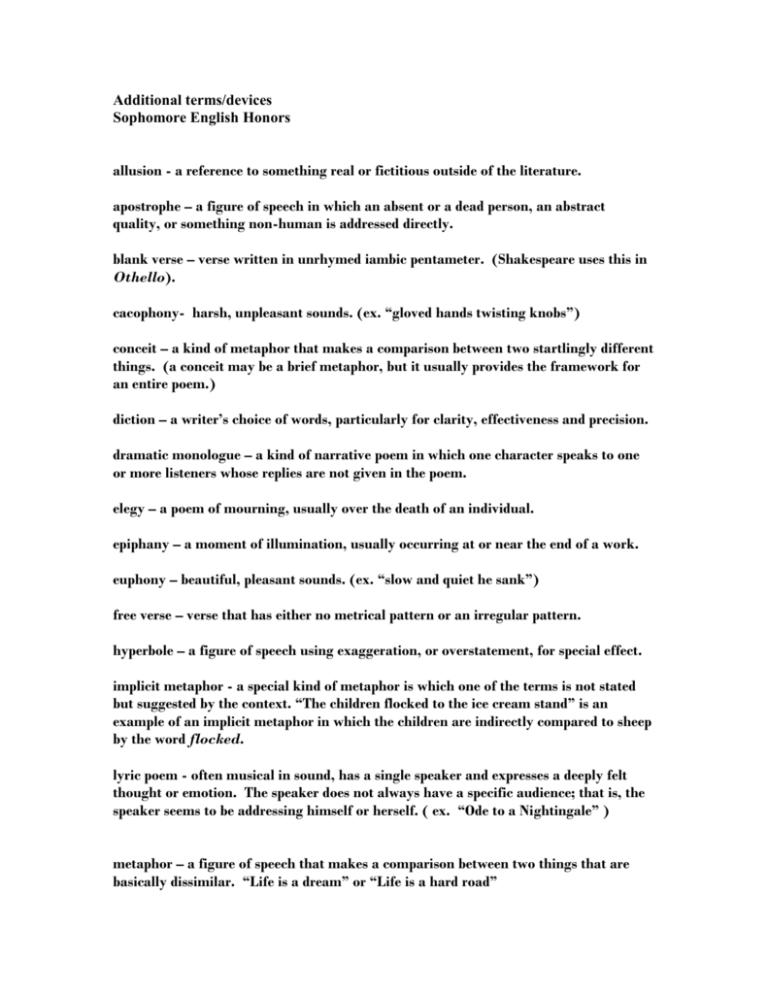
Additional terms/devices Sophomore English Honors allusion - a reference to something real or fictitious outside of the literature. apostrophe – a figure of speech in which an absent or a dead person, an abstract quality, or something non-human is addressed directly. blank verse – verse written in unrhymed iambic pentameter. (Shakespeare uses this in Othello). cacophony- harsh, unpleasant sounds. (ex. “gloved hands twisting knobs”) conceit – a kind of metaphor that makes a comparison between two startlingly different things. (a conceit may be a brief metaphor, but it usually provides the framework for an entire poem.) diction – a writer’s choice of words, particularly for clarity, effectiveness and precision. dramatic monologue – a kind of narrative poem in which one character speaks to one or more listeners whose replies are not given in the poem. elegy – a poem of mourning, usually over the death of an individual. epiphany – a moment of illumination, usually occurring at or near the end of a work. euphony – beautiful, pleasant sounds. (ex. “slow and quiet he sank”) free verse – verse that has either no metrical pattern or an irregular pattern. hyperbole – a figure of speech using exaggeration, or overstatement, for special effect. implicit metaphor - a special kind of metaphor is which one of the terms is not stated but suggested by the context. “The children flocked to the ice cream stand” is an example of an implicit metaphor in which the children are indirectly compared to sheep by the word flocked. lyric poem - often musical in sound, has a single speaker and expresses a deeply felt thought or emotion. The speaker does not always have a specific audience; that is, the speaker seems to be addressing himself or herself. ( ex. “Ode to a Nightingale” ) metaphor – a figure of speech that makes a comparison between two things that are basically dissimilar. “Life is a dream” or “Life is a hard road” meter – the generally regular pattern of stressed and unstressed syllables in poetry. mood- the general feeling or atmosphere created in a poem. onomatopoeia – use of words that sound like what they mean. (Ex. “Humming and buzzing”) oxymoron – using two contradictory words to describe the same object. (ex “eloquent silence”) paradox – a statement that seems obviously false that is somehow true. ( “Cowards die many times before their deaths.” ) personification – a figure of speech in which something non-human is given human qualities. structure - the poet’s arrangement or overall design of a work In poetry, structure refers to the way the words and lines are arranged to produce a particular effect. tone – the attitude a writer takes toward his or her subject, characters, or audience. Tone is found in every kind of writing. It is created through the choice of words and details.


